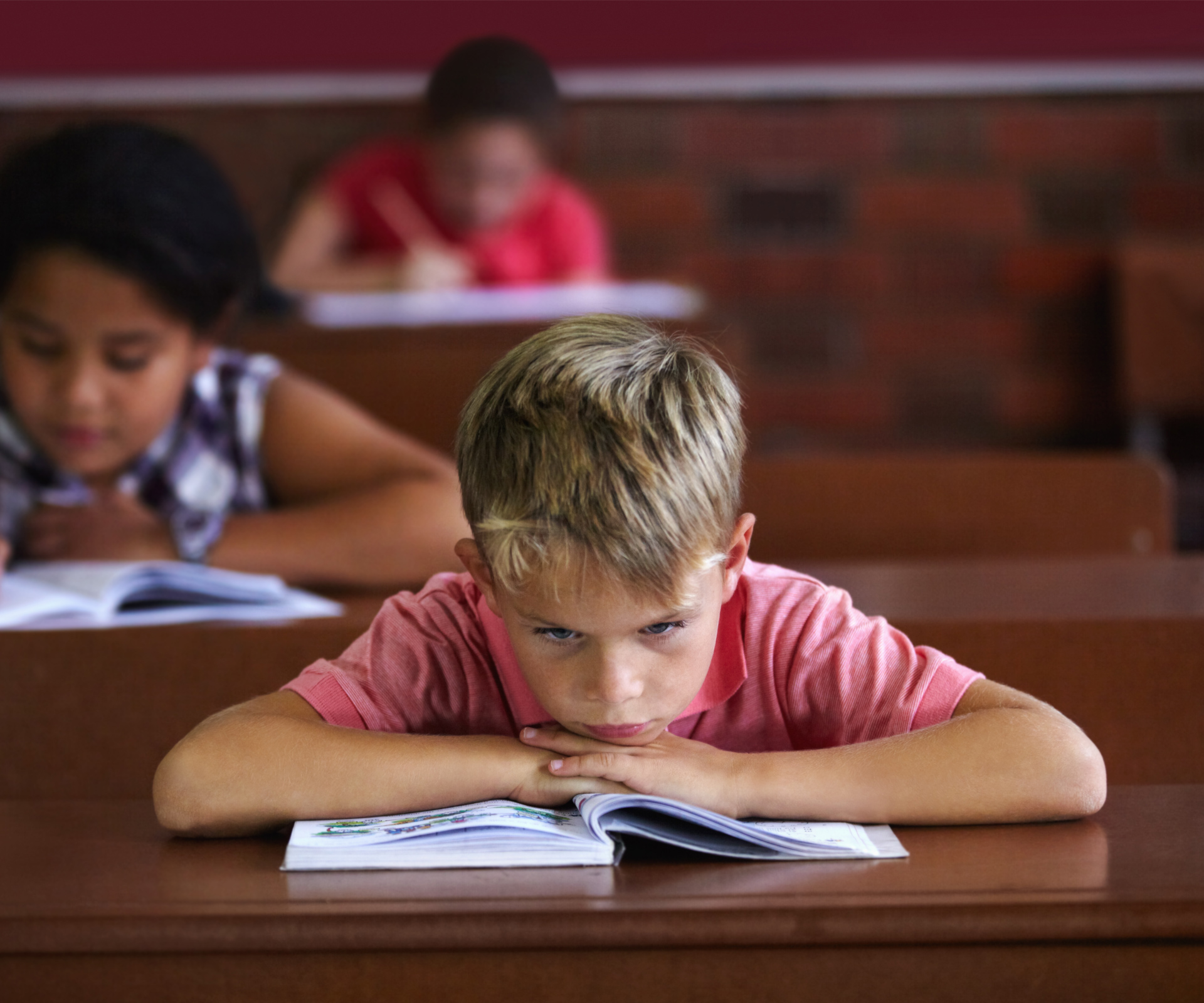When Jamie Trower was nine years old, his greatest hero – besides his grandfather – was the legendary James Bond. An adventure buff in the making, young Jamie was having his own 007 moment on the slopes of Mt Ruapehu with his beloved grandfather, Colin, when a horrifying accident forever changed his life.
Recalling the accident some 13 years later, Colin still finds it difficult going back to that day.
“I told him that he must follow me and stay behind me at all times,” he tells. “He had done that religiously all day.”
But on their last run of the day, when Colin turned right, Jamie swerved left to go over a jump, soared through the air and crashed head-first into a pile of snow-covered rocks.
“It was dreadful – he was like a ragdoll,” remembers Colin.
Comatose on impact, Jamie was airlifted to Waikato Hospital. As his family gathered by his bedside, the doctor told them to prepare for the worst.
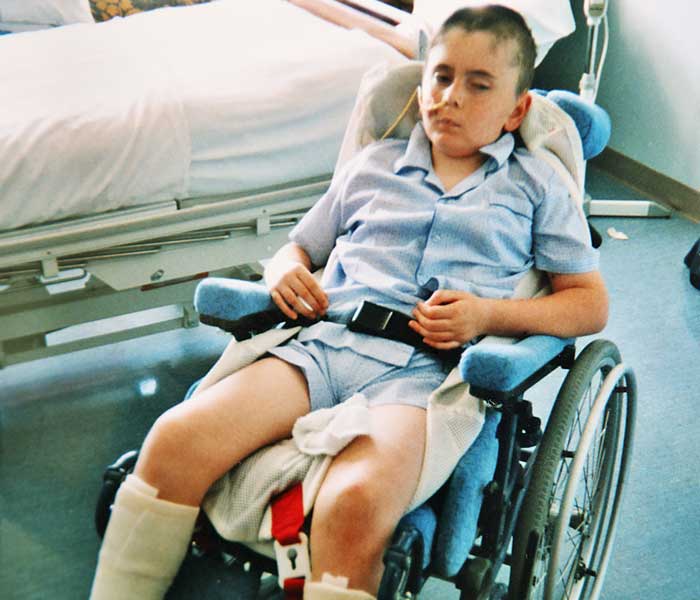
“I had fractured my skull in two places and had bleeding on the brain,” explains Jamie, who has no memories of the day himself.
The youngster was later flown to Auckland’s Starship children’s hospital, where he clung to his life, surviving a two-hour brain operation against all odds. He then spent weeks in intensive care and the neurological ward before a transfer to the Wilson Centre, a rehabilitation clinic for children.
“From the hospital, when they told us there wasn’t much chance, to the moment when his finger first moved, there were so many emotions,” recalls Colin quietly. “We all cried.”
For Jamie, nothing registered to him as wrong during his recovery.
“I was a newborn child in a nine-year-old’s body,” he says. “It wasn’t until Mum told me I had a brain injury that I realised things weren’t normal.”
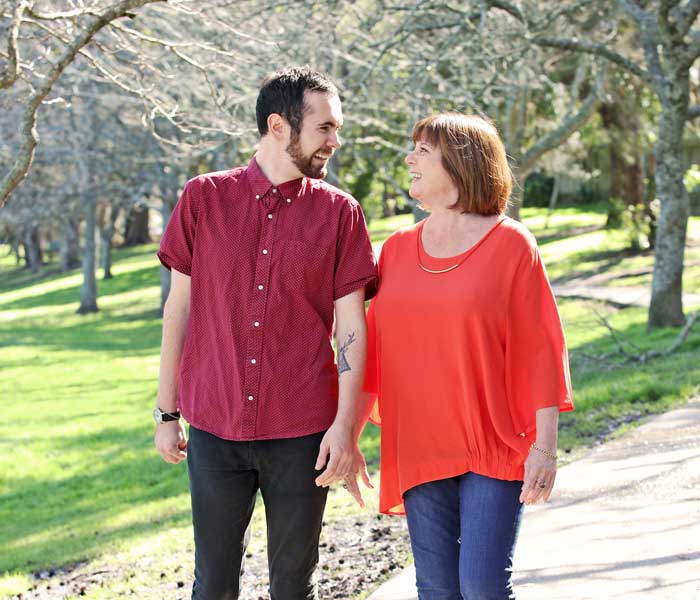
Slowly, Jamie began to speak again.
“I used to take him in a wheelchair around the Wilson Centre gardens,” explains Colin. “One day, I was pushing him along and I said, ‘Your mum’s going to come visit you later Jamie,’ and for the first time, he replied and said, ‘Mummy’. It was bloody emotional.”
Now 22, Jamie still lives with effects of the accident. He has a strong tremor on his right-hand side and short-term memory problems. He also struggles with speech, so mum Jo often helps the conversation along.
She beams with pride when she talks about Jamie.
“He didn’t change personality at all after the accident,” smiles Jo. “He’s always been accepting. He’s never sat there asking why this happened to him.”
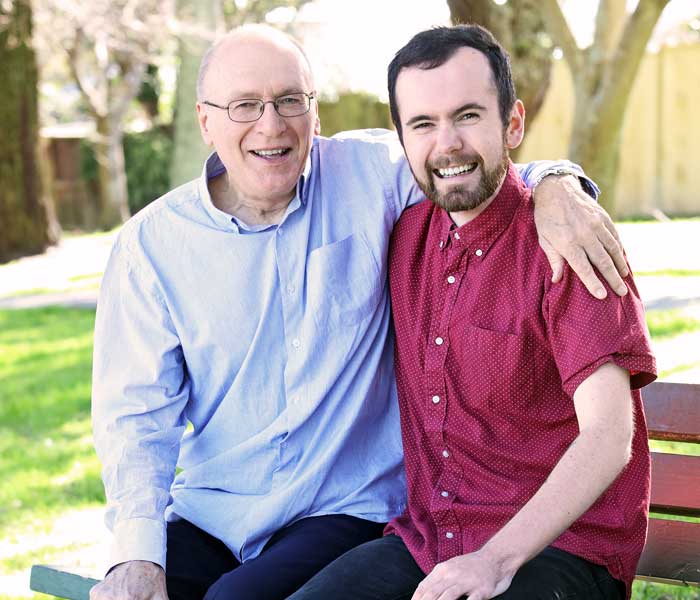
Granddad Colin is proud of Jamie, who was just nine at the time of the accident.
Despite his positive spirit, recovery has been hard for Jamie. He says, “People always speak to me loudly and slowly, emphasising their words.”
He also had to learn to write again. At the Wilson Centre, he practised with a typewriter every day. He confesses, “Maybe the reason I didn’t freak out in rehab or moan about physio was because I was writing all those feelings down.”
What began as a simple task on his road to recovery has since led to something much bigger. After graduating high school, Jamie went on to study English and drama at university. It was there he revisited the words he had written in rehab all those years ago and reworked them into his poetry book Anatomy, which shares the details of his life with a disability.
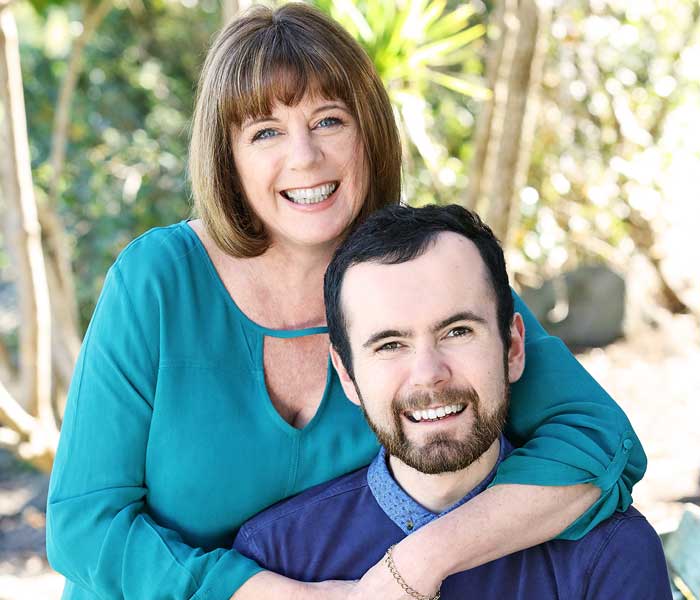
Jamie’s mum Jo beams with pride when talking about her boy.
Laughing in disbelief as he thinks back, Jamie says, “In high school, I didn’t even like poetry! It wasn’t until my course at the University of Auckland that I started appreciating poetry as a form of personal expression. Anatomy is like a diary.”
Colin was beyond proud to see his grandson publish a book.
“That was an amazing thing for us,” he grins. “When you’ve come through so much and then to be able to write his own book of poetry, it’s quite incredible.”
But no-one was more excited to see his work published than Jamie himself.
“When the box came with all my books and I saw Anatomy for the first time, and then I held it, it was an unreal experience. I can’t describe it.”


